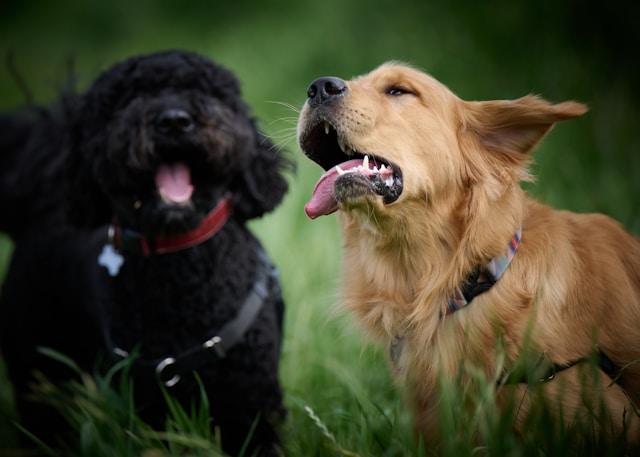Playgroups vs. Dog Parks

As a dog trainer, I’ve witnessed firsthand the positive impact that structured playtime can have on dogs of all ages. While public dog parks may seem like the go-to option for socialization and exercise, organized playgroups offer several distinct advantages, especially for puppies. Let’s delve into why we recommend organized playgroups:
1. Controlled Environment
One of the primary benefits of playgroups is the controlled environment it provides. Unlike public dog parks, where interactions are largely unregulated, organized play sessions are supervised by experienced professionals who ensure that all dogs play safely and respectfully. This controlled setting minimizes the risk of negative encounters and allows dogs to learn appropriate social skills in a safe and supportive environment.
2. Age-Appropriate Interactions
Young puppies have unique needs when it comes to socialization and play. Organized playgroups are often tailored to accommodate puppies’ developmental stages, ensuring that interactions are age-appropriate and conducive to healthy socialization. Puppies can engage with dogs of similar age, size, and energy levels, fostering positive experiences that lay the foundation for well-adjusted adult dogs.
3. Professional Guidance
Organized playtime sessions are typically led by knowledgeable trainers or facilitators who understand canine behavior and communication. These professionals can intervene if play becomes too rough or one puppy shows signs of discomfort, ensuring that interactions remain positive and constructive. Additionally, trainers may incorporate structured activities and training exercises into play sessions, providing valuable learning opportunities for both puppies and their owners.
4. Health and Safety Measures
In public dog parks, there’s always a risk of exposure to contagious illnesses, parasites, and unvaccinated or aggressive dogs. Organized playtime sessions often require proof of vaccinations and enforce strict health and safety protocols to minimize these risks. This peace of mind allows parents to relax and enjoy playtime knowing that their dogs are in a clean and secure environment.
5. Socialization Beyond Play
Organized dog playtime isn’t just about romping and roughhousing—it’s also an opportunity for puppies to learn valuable life skills. Through positive interactions with other dogs and humans, puppies develop confidence, communication skills, and impulse control. They learn how to navigate social cues, share resources, and respond appropriately to various stimuli, setting them up for success in a variety of real-world situations.
While public dog parks can be tempting for puppy playdates, organized playgroups offer numerous advantages that make it the preferred choice, especially for young puppies. You can find reputable playgroups by searching on DigUp
